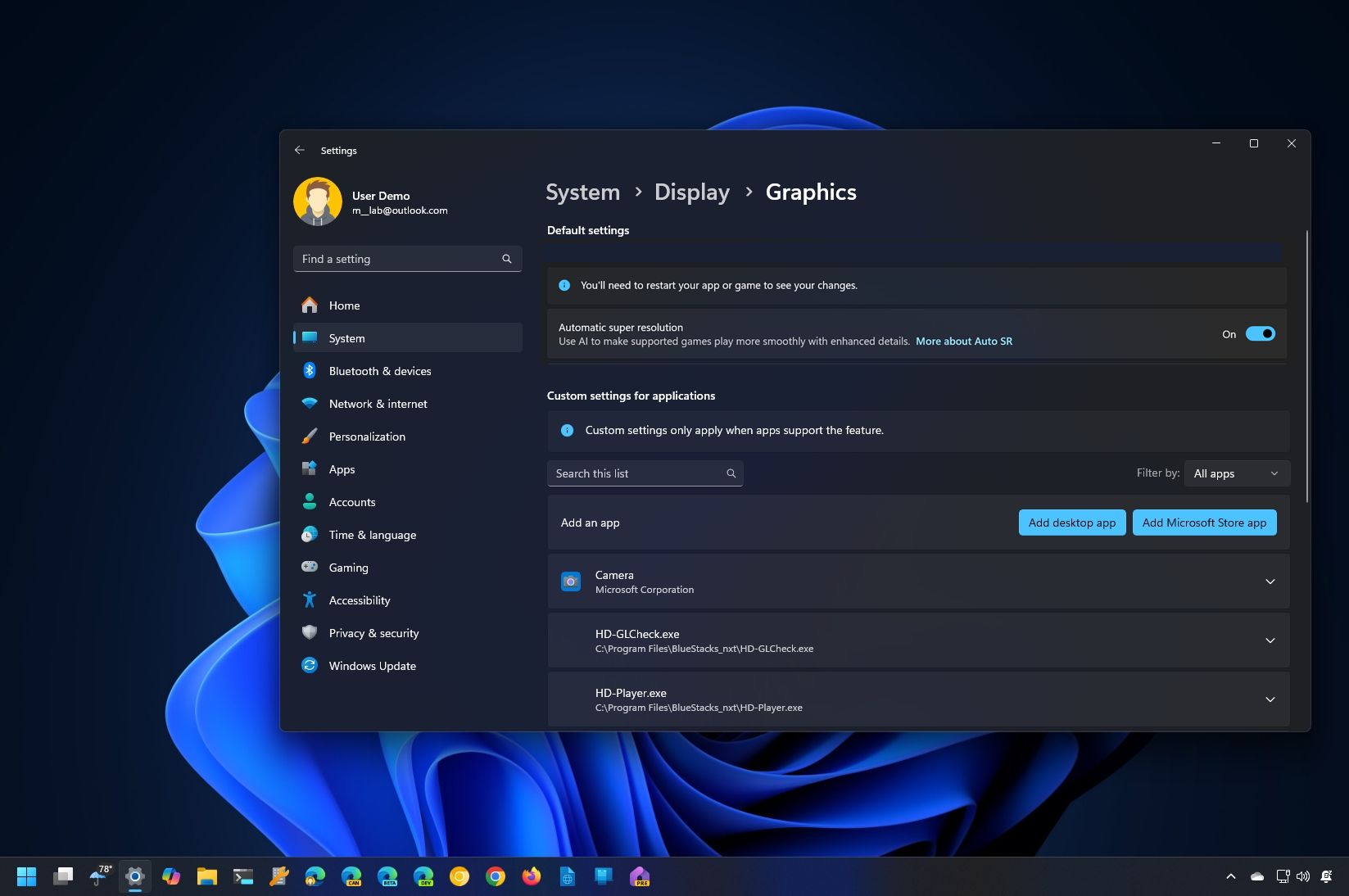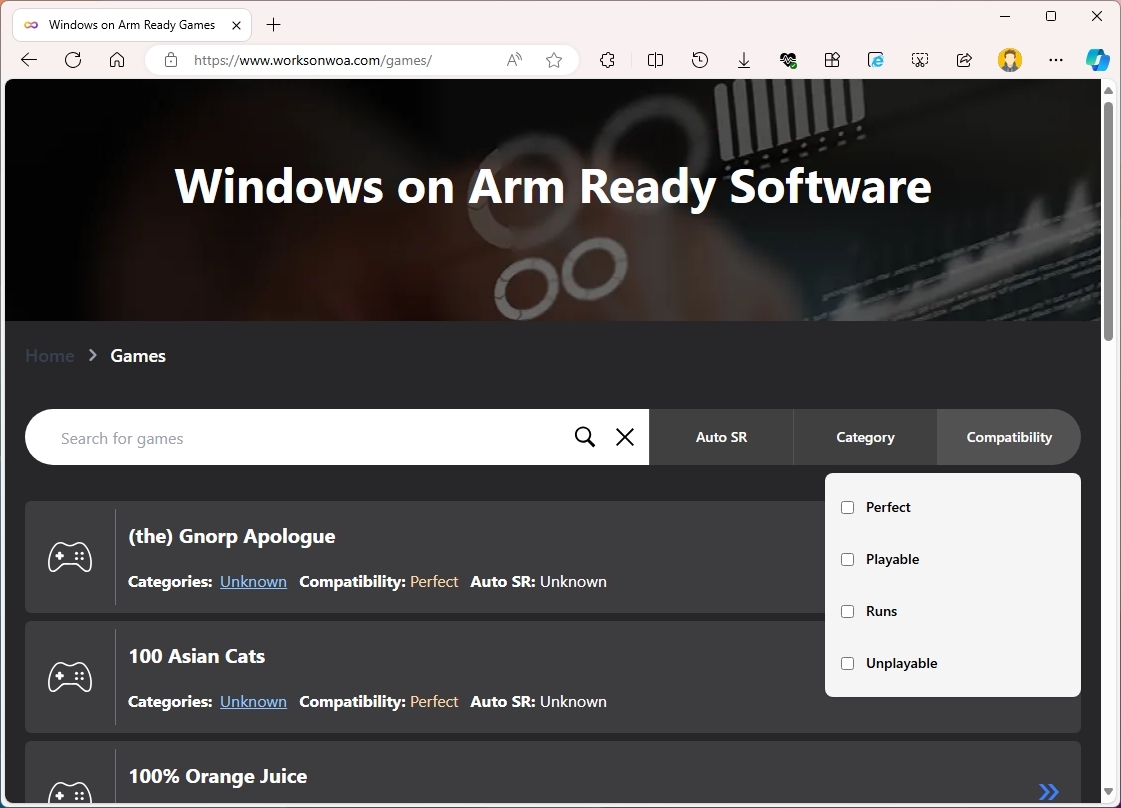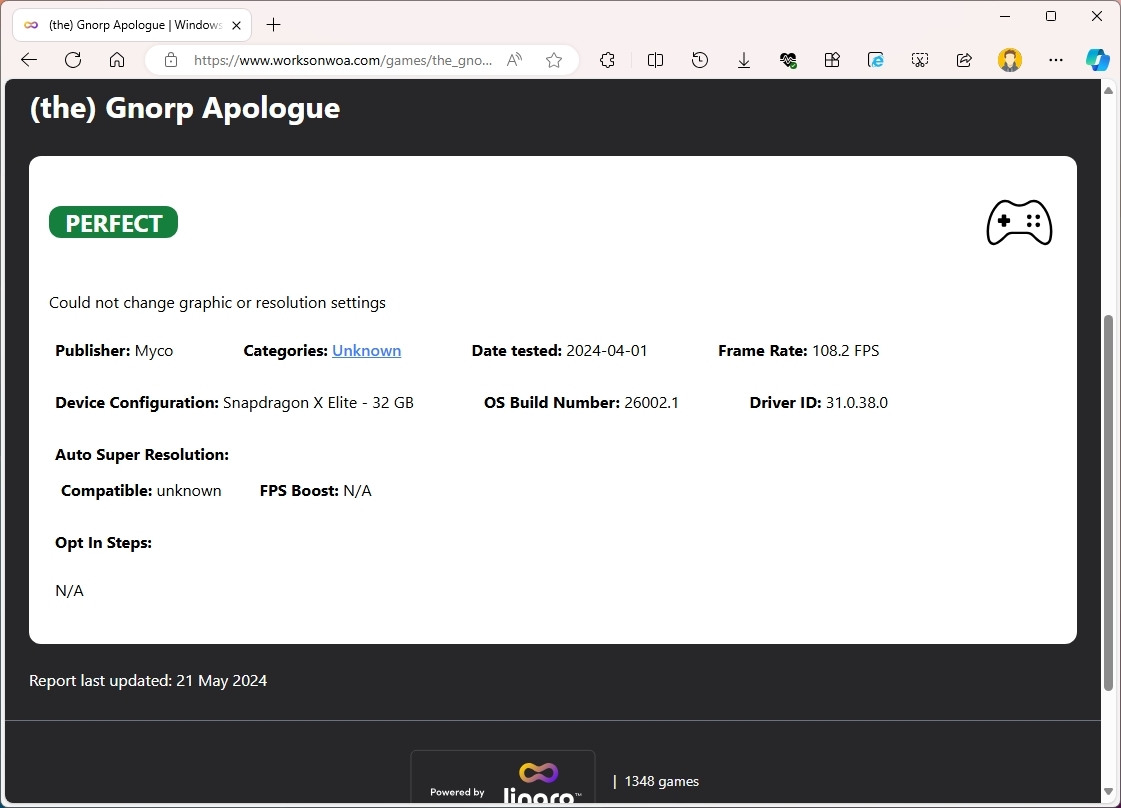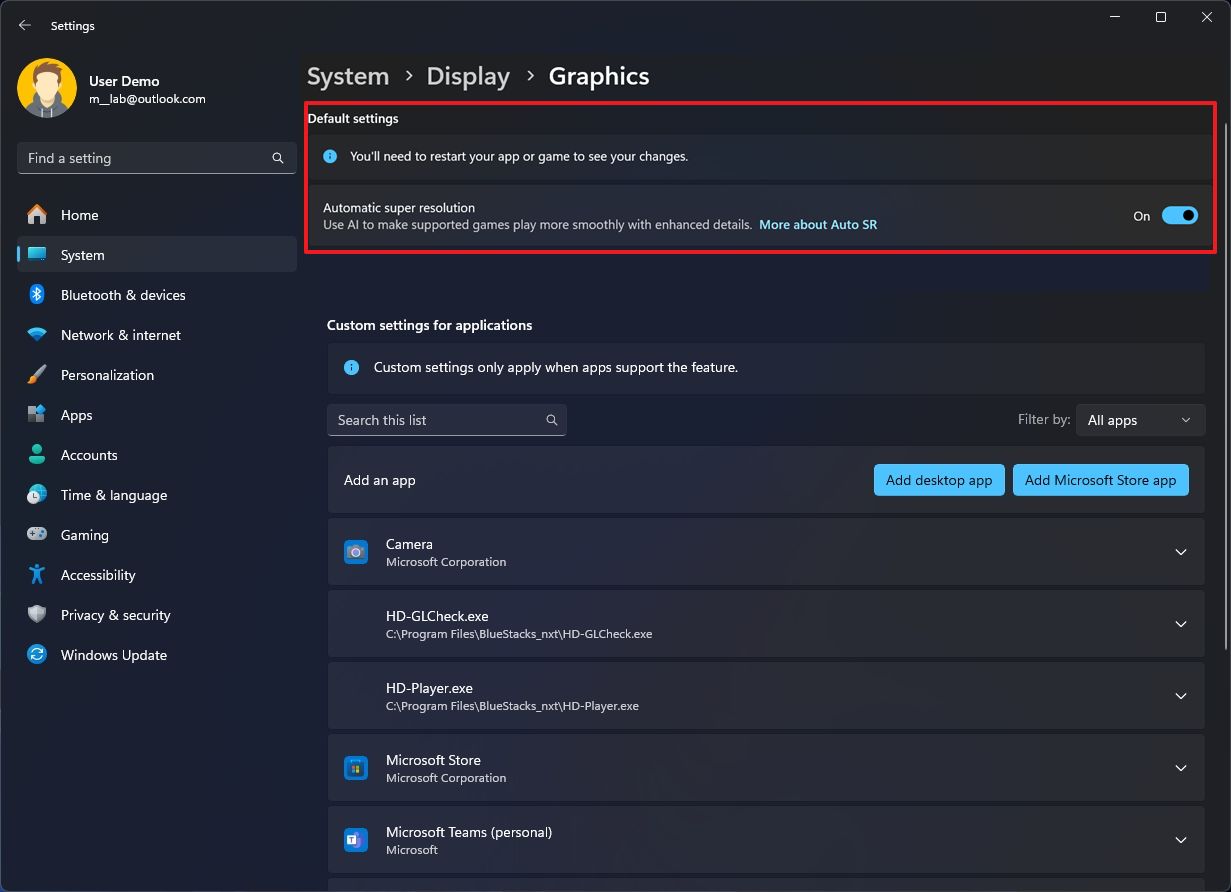What's new with gaming on Windows 11 version 24H2 (2024 Update)
The new feature update for Windows 11 brings some gaming improvements for ARM-based devices, and here's what you need to know.

On Windows 11 version 24H2 (2024 Update), Microsoft is rolling out a slew of new features and improvements, and some of them are related to gaming. However, these changes are mostly aimed at making the ARM platform a suitable architecture for playing games.
Disclaimer
Important: As a result of Microsoft gradually rolling out new features and improvements for Windows 11 versions 23H2 and 24H2, not all the changes will be available on day one with the release of the 2024 Update. Also, some improvements meant for version 24H2 will eventually be ported to version 23H2. The company is even working on changes that will first be available on version 23H2, and then they will be ported to version 24H2. Also, it is worth noting that the feature update became partially available on June 18, 2024, for Copilot+ PCs, but with only some of the intended features, excluding Windows Recall, as it has been postponed until further notice. In October, the feature update will become more broadly available for existing devices. Finally, AI features may require new hardware (such as NPU) to be available.
Game compatibility for Windows on ARM
First, Microsoft and Qualcomm have been collaborating and creating the "WorkOnWoA.com" website that lists the games compatible with the ARM version of Windows 11.
At the time of this writing, the website includes around 1348 games that were tested. You can also sort the games by category, whether they support Auto SR (I'll explain this feature in a second), and show how compatible they are since some games may play perfectly or very poorly.

If the game works perfectly, it means it runs at 60 or more FPS (Frames Per Second) at 1080p. If it's only playable, the game runs at 30 or more FPS at 1080p. If it only runs, you may encounter some glitches, and if it's unplayable, there are problems with the game.

The company even lets anyone participate and contribute to the list by following these guidelines.
Auto Super Resolution for Copilot+ PCs
Second, and perhaps more importantly, Windows 11 version 24H2 is also introducing the new Auto Super Resolution (Auto SR). In simple terms, this feature uses AI to upscale games to improve frame rates and image quality in real-time.
This feature is currently limited to Copilot+ PCs, meaning those devices featuring the latest Qualcomm Snapdragon X Series processor because it depends on the NPU (Neural Processing Unit). (The exclusivity doesn't seem to be forever, so we can expect the feature to become more broadly available for AI PCs in the future.)
Get the Windows Central Newsletter
All the latest news, reviews, and guides for Windows and Xbox diehards.
If you have one of these computers (such as the Surface Pro (11th Edition) or the Surface Laptop (7th Edition)), you will be able to turn on this feature from the Settings app.
To enable Auto SR on Windows 11, open Settings > Display > Graphics and turn on the "Automatic super resolution" option.

If you don't have the feature enabled, and you launch a compatible game, you will notice a toast notification letting you know with an option to turn on the feature in the Settings app.
In addition, Microsoft has also created the DirectSR API (Application Programming Interface) in partnership with AMD, Intel, and Nvidia. This new API acts as a middleman between game developers and various Super Resolution (SR) technologies offered by different graphics card manufacturers, such as AMD FidelityFX Super Resolution, Intel XeSS, and Nvidia DLSS.
In other words, in the past, developers needed to implement super-resolution technologies individually. However, with the DirectRS API, Microsoft now offers a single code path to upscale games using the available technologies.
It's important to note that Auto Super Resolution (Auto SR) is not the same as Super Resolution (SR), which usually refers to the upscaling technologies from other graphics card vendors like Intel, AMD, and Nvidia.
Finally, it also appears that DirectSR won't be only available on Windows 11 but on Windows 10 too. Furthermore, as part of the Auto SR requirements, supported games will need DirectX 11 or 12 and emulated x64 or ARM64 processors.
Prism emulator for ARM
Microsoft is also shipping Prism, a new emulator that converts x86 or x64 code into ARM64 instructions without extra coding from developers.
Although the emulator has been designed for regular applications, it works for games, allowing x86 and x64 games to run on ARM-based devices.
This is not the first time that Microsoft has tried to bring emulation to ARM devices, but this time around is different because Prism introduces many performance improvements, which, in combination with the new Auto SR and the capabilities of the Qualcomm Snapdragon X series processors, you will notice the difference.
Anti-Cheat for ARM
Furthermore, Microsoft has partnered with anti-cheat developers and game studios to ensure their anti-cheat solutions services work on ARM-based devices. These solutions include BattlEye, Denuvo Anti-Cheat, and Wellbia XIGNCODE3 / UNCHEATER.
Unfortunately, there are still many games on Windows 11 that aren't playable on Snapdragon-powered laptops due to anti-cheat software not being compatible, or having been updated.
Creating games on ARM
Finally, the software giant has been working with Unity to bring the "Unity Engine" to ARM-based devices as a native ARM application for the operating system.
Unity Engine is a popular game engine for creating 2D and 3D video games. The engine offers the building blocks to design video games across different computing platforms, including PCs and consoles. It is particularly popular for indie game development (smaller, independent studios) due to its user-friendly interface and large community for help and support.
If you are a developer, you can download the latest preview of Unity 6 from the official download page.
More resources
For more helpful articles, coverage, and answers to common questions about Windows 10 and Windows 11, visit the following resources:
Mauro Huculak has been a Windows How-To Expert contributor for WindowsCentral.com for nearly a decade and has over 15 years of experience writing comprehensive guides. He also has an IT background and has achieved different professional certifications from Microsoft, Cisco, VMware, and CompTIA. He has been recognized as a Microsoft MVP for many years.

